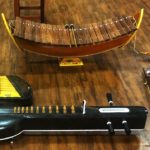
Blind Thai Singers & Musicians: Who Are They?
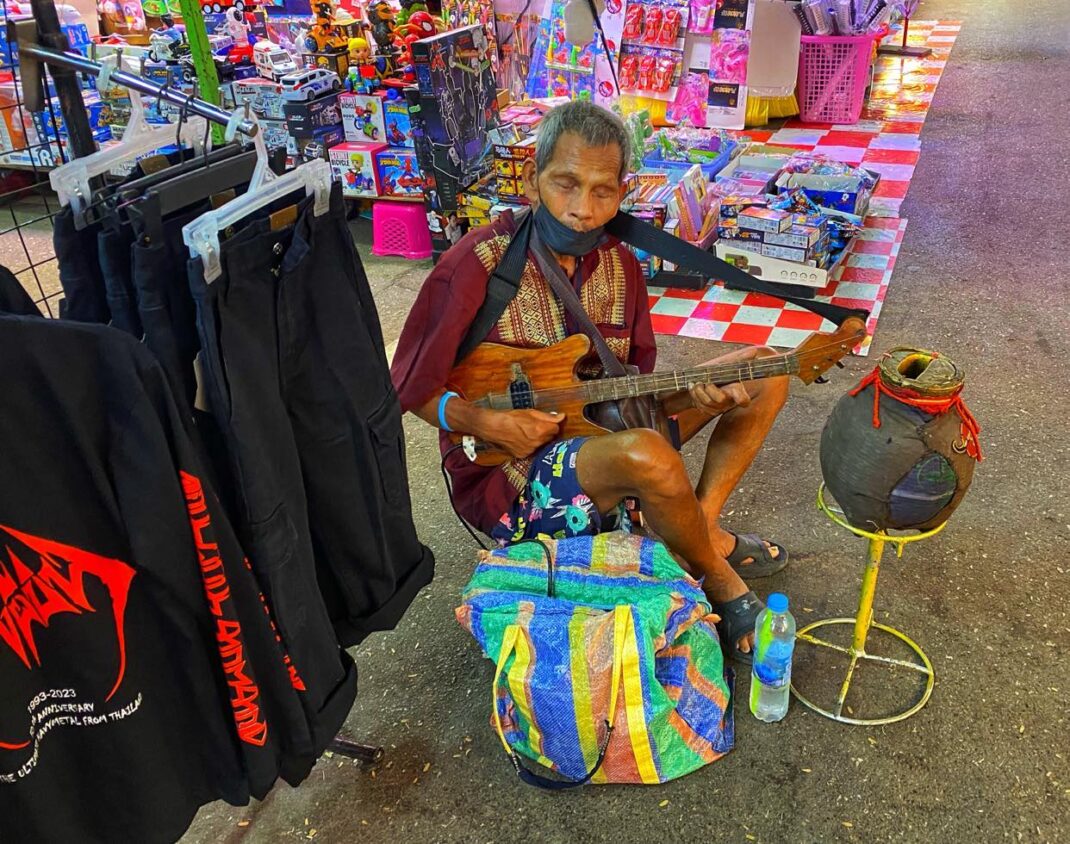
While efforts have been made to improve the lives of blind people in Thailand, many obstacles continue to exist for Thais who are visually-impaired. This is especially true in rural provinces like Sakon Nakhon where access to resources are difficult.
It’s been estimated that only 10% of Thailand’s blind have the opportunity to receive rehabilitation, education, and vocational training, while less than 5% of the blind have a formal career.
Even though a blind Thai person can technically study at university and seek higher employment opportunities, only around 400 have ever attempted this career route. The most famous example is Prayat Punong-ong, a Khon Kaen native who after receiving a Bachelor’s degree in English established the Christian Home for Education of the Blind, which in 1984 became the Christian Foundation for the Blind under the patronage of H.M. King Bhumibol the Great.
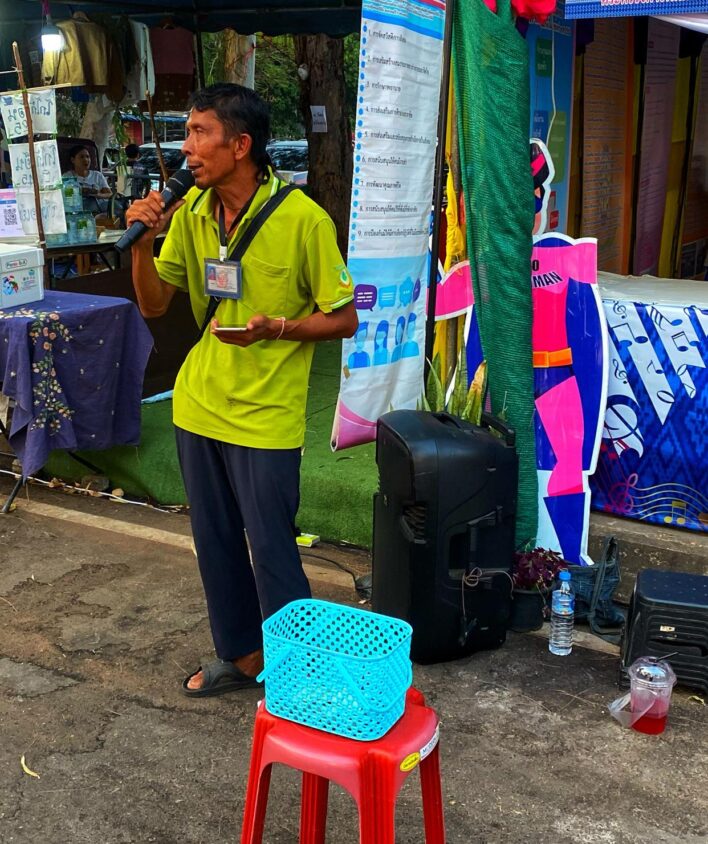
What Do the Blind in Thailand Do for a Living?
The visually-impaired in Thailand most commonly work at making arts and crafts, or as massage therapists, or as singers and musicians. Everywhere in Thailand you’ll find blind Thai singers and musicians working for tips. Most often they are seen at fairs, festivals, and large outdoor markets, where they find a spot to perform near the foot traffic.
In downtown city areas, blind Thai singers with a small amplifier hung around their neck and a microphone are sometimes lead by a family member from outdoor restaurant to outdoor restaurant to serenade the diners with old Thai songs.
Like all Thai people, blind singers and musicians have a deep, heartfelt connections with their family. In interviews, they describe how they do not want to be a burden on their parents or siblings, and how they want to be contributing members to society. In order to be as useful as possible, some will travel throughout Thailand (with a family member) to sing or play music at festivals and city centers.
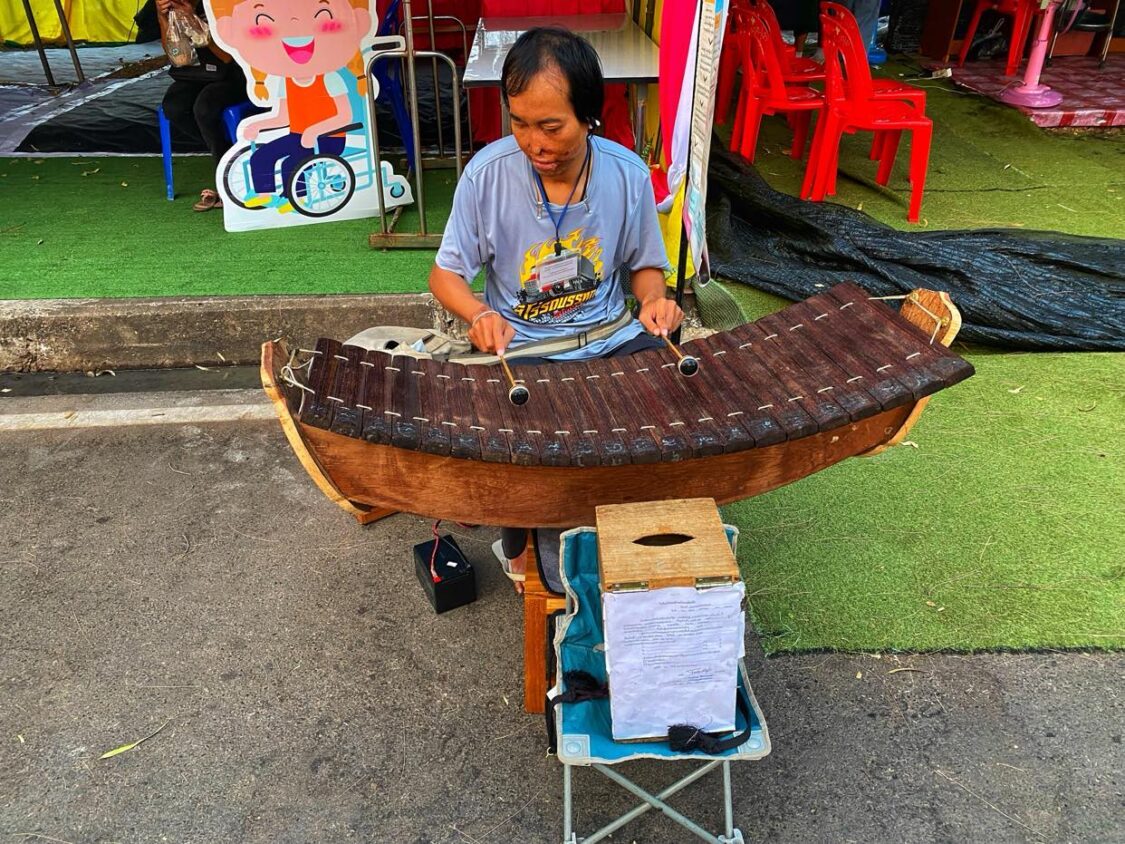
How Much Do Blind Thai Musicians & Singers Make?
Like other visually-impaired people in Thailand, a blind Thai musician or singer receives a small 500 baht a month disability allowance from the government, which barely covers food expenses for a week. Their income from playing or singing music earns them on average 6,000 baht a month, although sometimes it can be much more, as many Thai Buddhists view their donation as a way of making merit and will tip the musician very generously.
Some Thais, however, never tip blind musicians (or beggars), believing that they are part of a mafia effort to emotionally extort money from the public. While the Thai mafia has occasionally been known to exploit beggars and the blind (primarily in Bangkok), this is a rarity today, as they have much more lucrative ways to fill their pockets. So, concerns about the mafia should never keep you from giving a nice tip to a blind singer in Thailand.
To supplement their income, some blind musicians will sell lottery tickets or food, especially if they have a wife or child to support. Others have formed small musical groups, and travel around playing at educational institutions, private organizations, and government venues in Thailand, in addition to holding concerts at fairs and festivals. They usually play traditional music, using traditional Thai & Isaan instruments, but in recent years they have begun learning more modern music to appeal to young students when playing at primary or secondary schools.
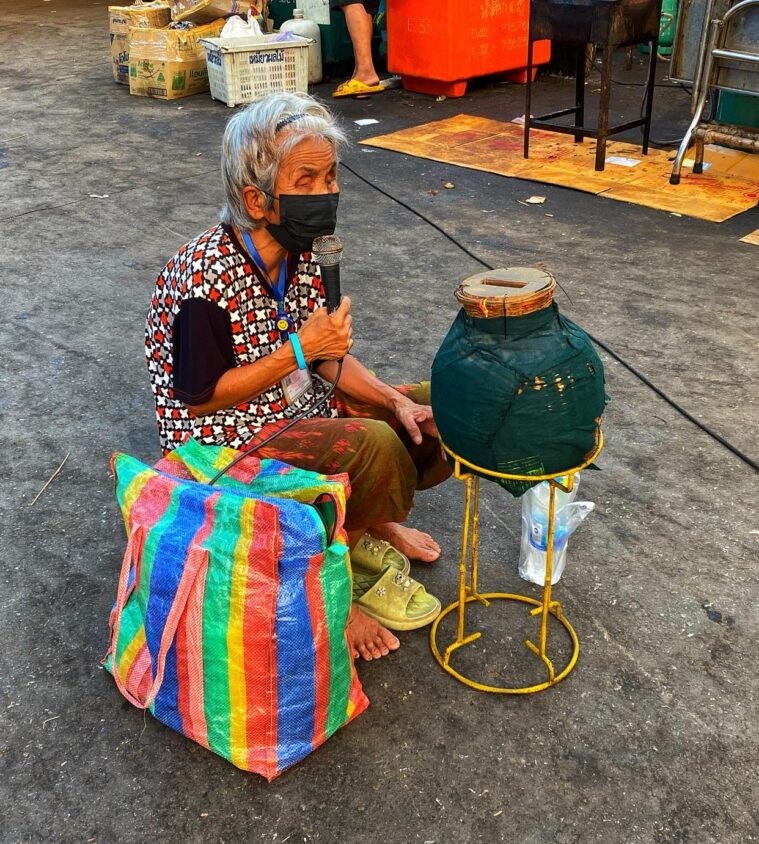
Problems Faced By Blind Musical Bands in Thailand
The problem faced by these traveling bands is that after all travel expenses are paid, the income is not that much, compared to if they just played solo locally in their province for tips/donations. So, a number of blind singers and musicians have returned to do doing solo gigs after playing in a band. Solo gigs played at the leisure of the musician also offers them greater freedom and less stress, which is highly valued in Thailand by all Thais alike.
- The Hidden Dharma of Thai Language & Culture - May 11, 2024
- The Royal Ploughing Ceremony in Thailand – A History - May 8, 2024
- Dying Well the Buddhist Way in Thailand - May 7, 2024

